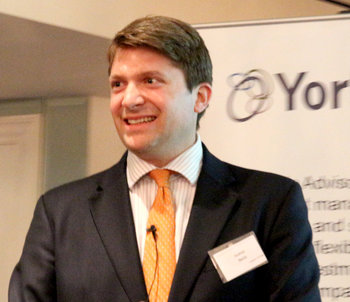 Supporters of the Maghreb Union project say Morocco, Algeria, Libya, Tunisia and Mauritania would reap economic and security dividends.
Supporters of the Maghreb Union project say Morocco, Algeria, Libya, Tunisia and Mauritania would reap economic and security dividends.
Morocco just voiced its commitment to re-launching the Arab Maghreb Union (UMA).
“The Maghreb project is still a prerequisite for the sustainable and mutually supportive development of the nations of the Maghreb and the surrounding area,” Moroccan Deputy Foreign Minister Youssef Amrani told the UN Security Council on August 6th.
According to the Moroccan official, reviving the long-dormant project would make UMA member states Morocco, Algeria, Tunisia, Mauritania and Libya more stable and prosperous.
Both local experts and international partners have reached the same conclusion: that the five countries would benefit from forming a regional economic hub.
Such a bloc would generate wealth, create jobs and combat youth unemployment, economist Hicham Cherboute said.
It would also enable the region to compete on an international level and negotiate advantageous agreements, especially with the European Union, he added.
“The absence of a Maghreb market and the weak exchange rates are a real handicap. The ideal situation would be a Maghreb that benefits from economic synergy. The lack of an integrated Maghreb is costing these countries very dearly,” Cherboute said.
“The loss is estimated at between two and four percentage points of GDP for each country. This has a negative impact on job opportunities,” he said.
Aside from the economic imperatives, a closer partnership among UMA countries is also necessary to deal with their shared security threat. Thus far, such co-operation has been deemed inadequate to address the challenge, political analyst Amine Bekkali told Magharebia.
“Organised crime, which is rampant in the Sahel, is threatening the future of the Maghreb,” Bekkali said. “Despite this, co-operation initiatives aimed at tackling the risks jointly are virtually non-existent,” he said.
“Unless all of the countries get involved and pool their efforts through measures such as intelligence-sharing, the region will remain in danger,” he added.
He voiced his hope that the pledges made by senior Maghreb officials at recent high-level meetings would be fulfilled.
Talks last April between UMA interior ministers led to several recommendations, including a call for greater intelligence-sharing among security services.
In the Rabat Declaration issued at the end of their mini-summit, the Maghreb ministers vowed to adopt a joint approach toward tackling threats and terrorist plots.
Terrorism “needs to be tackled jointly…because Maghreb countries are neighbours and belong to the same regional area, and face common challenges and threats”, the declaration stated.
It is time to implement the recommendations of the Morocco ministerial meeting, Bekkali said.
“We need to move from the stage of talking to the stage of actually getting things done,” the analyst added.
One sticking point to getting the decades- old UMA project back on track has been the closedAlgeria-Morocco border. But signs are emerging of a thaw in bilateral relations between the two neighbours.
“The authorities of both countries need to work together on mechanisms for reopening” the border, Algerian Interior Minister Dahou Ould Kablia said at the Rabat meeting.
Ould Kablia said talks with his Moroccan counterpart Mohand Laenser, who had visited Algiers earlier the same month, sent a “strong signal” on warmer relations and helped create an environment “conducive” to progress on the issue.
By Siham Ali in Rabat for Magharebia – 16/08/2013








